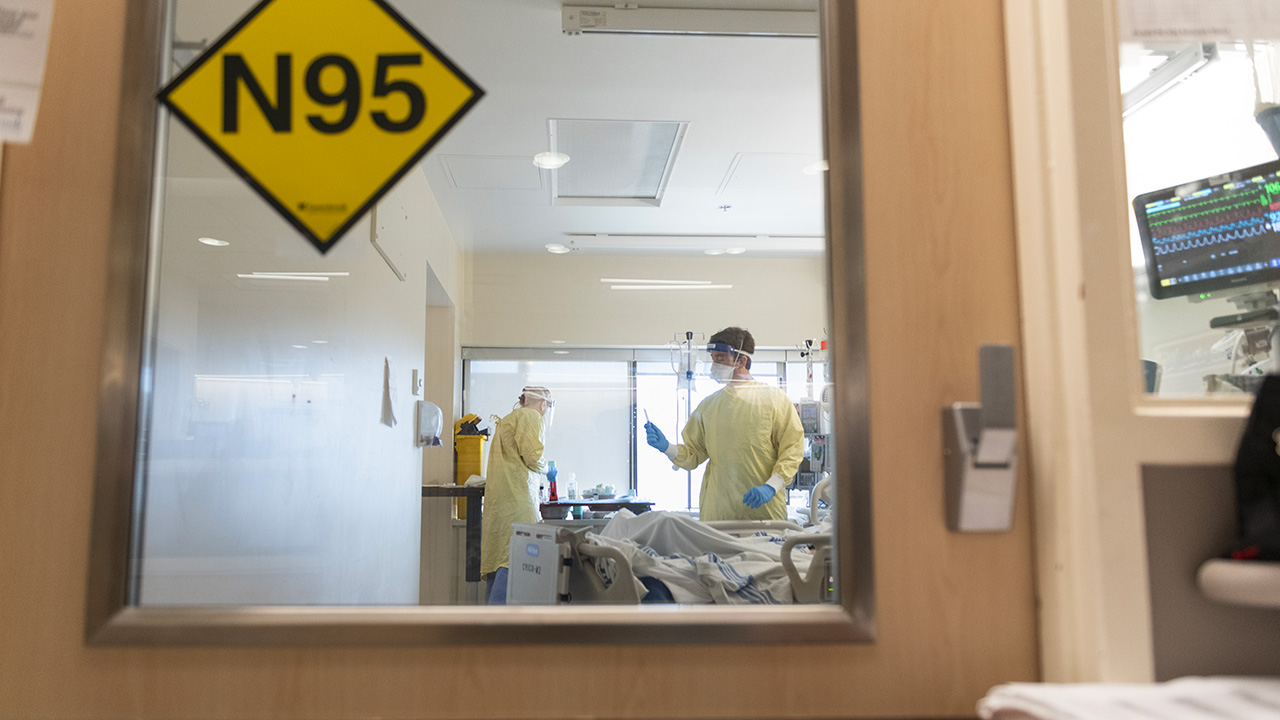Remdesivir for COVID-19 found to reduce need for mechanical ventilation
Remdesivir, when compared with standard of care for COVID-19, reduced the need for mechanical ventilation in hospitalized patients, according to a new randomized controlled trial in CMAJ (Canadian Medical Association Journal).
The study, Canadian Treatments for COVID-19 (CATCO), is a Canadian Institutes of Health Research funded substudy of the global World Health Organization Solidarity trial which is examining the effects of various treatments for COVID-19. CATCO is being led by researchers at Sunnybrook Health Sciences Centre and the University of British Columbia.
In the trial which involved 52 Canadian hospitals, Canadian researchers studied the effect of remdesivir in hospitalized patients with COVID-19 between August 14, 2020 and April 1, 2021. There were 1282 patients included, with about half randomized to the treatment arm and the others to the control group. Evidence has been mixed on the effect of remdesivir, a repurposed antiviral medication, in people with COVID-19.
The Canadian trial found that in patients not ventilated at the start of the study, the need for mechanical ventilation in patients receiving remdesivir was 8% vs. 15% in the control arm receiving standard of care. Mean oxygen-free and ventilator-free days at day 28 were 15.9 and 21.4 in the remdesivir group compared with 14.2 and 19.5 in the control group – meaning, patients treated with remdesivir were able to come off oxygen and mechanical ventilators sooner than those receiving standard care.
“The benefit of treatment was most apparent for preventing the need for mechanical ventilation, suggesting probable added value for patients with less severe disease to avoid progression during hospital stay,” says Dr. Srinivas Murthy, co-principal investigator of the trial and a clinical associate professor at the University of British Columbia. “This may have important implications for patients and for health systems, particularly when ICU capacity, mechanical ventilation or oxygen are in limited supply.”
“While increased survival was not definitively demonstrated, the sum total of demonstrated benefits in this new trial argue fairly strongly in favour of a treatment strategy that incorporates remdesivir in the decision-making when caring for patients with COVID-19” says Dr. Rob Fowler, co-principal investigator of the trial and critical care physician and senior scientist at Sunnybrook Health Sciences Centre in Toronto, which is sponsoring the CATCO trial and helping to coordinate it at all Canadian hospitals.
The CATCO trial was able to collect more detailed data compared with some other countries, as well as engaging patients across a range of ethnicities, particularly important for applications in other countries and in our multicultural society. It also represented the largest single country trial of remdesivir reported to date.
These results add to the larger global trial around how remdesivir could be used in other countries.
“The findings of CATCO are also important and complementary to Solidarity as they help to address questions of generalizability of a large simple protocol carried out across a wide range of hospitals and health care systems from low-, middle- and high-income countries,” the authors conclude.
Media contact:
Samantha Sexton
Communications Advisor
samantha.sexton@sunnybrook.ca



